Conflict resolution: be unpredictable
The Indian defence minister spoke – unexpectedly – of a doctrinal change in stance.
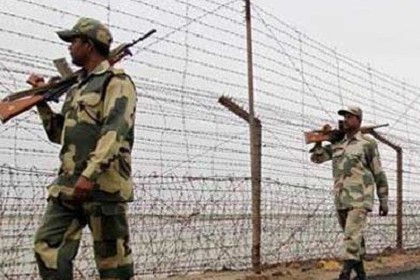 Courtesy: India.com
Courtesy: India.com
The Indian defence minister spoke – unexpectedly – of a doctrinal change in stance.
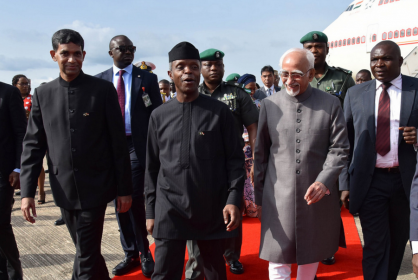 Courtesy: MEA India / Flickr
Courtesy: MEA India / Flickr
India has remained connected with the African nations in the course of the last one year through high-profile events and well-publicised visits by top leaders. This momentum in bilateral cooperation needs to be sustained on all fronts
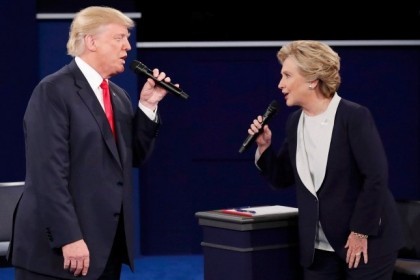 Courtesy: Reuters
Courtesy: Reuters
This excerpt was transcribed from The Gateway House Podcast episode, 'U.S. Elections: Trump’s down but not out' which is part of the special miniseries on the U.S. election and its foreign policy implications. In the episode, Ambassador Neelam Deo discussed the larger foreign policy implications mentioned by the presidential candidates at the second Presidential debate on Sunday night
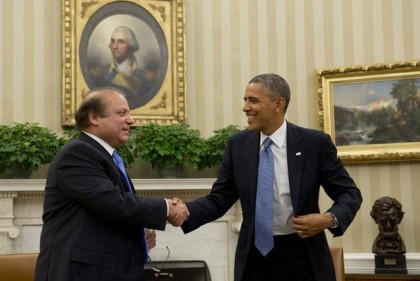 Courtesy: Wikipedia
Courtesy: Wikipedia
There has been a strengthening in the India-U.S. bilateral, which reached new heights with the signing of the LEMOA agreement in August, 2016. However, this strengthened bilateral has not resulted in a strong response to Pakistan by the U.S. Government.
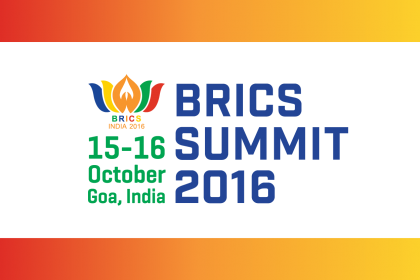 Courtesy: Gateway House
Courtesy: Gateway House
The 8th BRICS summit in Goa comes in the midst of major geopolitical events; Brexit, the U.S. elections, the South China Sea dispute, and the terror attacks in Uri. There is much need for BRICS to demonstrate to the world, its capability to manage internal differences and showcase a collective sense of cooperation
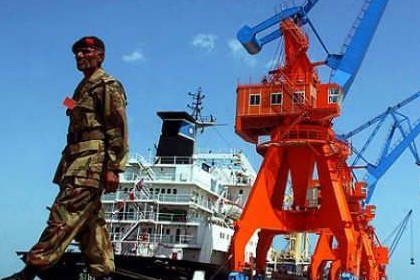 Courtesy: AP
Courtesy: AP
India’s new focus on Balochistan has more to do with the China Pakistan Economic Corridor (CPEC) than with Kashmir. China understands that CPEC may not be achievable. But there are real dangers in reviving Pakistani fears of secessionism and in broadening the field of Indo-Pakistani conflict beyond the confines of Kashmir.
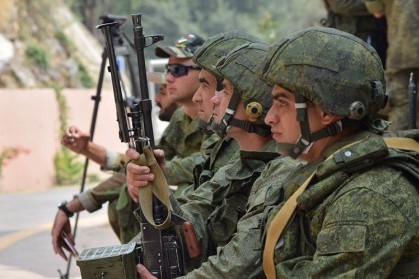 Courtesy: Ministry of Defence of the Russian Federation
Courtesy: Ministry of Defence of the Russian Federation
Russia's decision to go ahead with joint military exercises with Pakistan is the latest move in Putin's flexible and pragmatic Asian foreign policy playbook. However, whether it will be worth having provoked Indian ire remains to be seen.
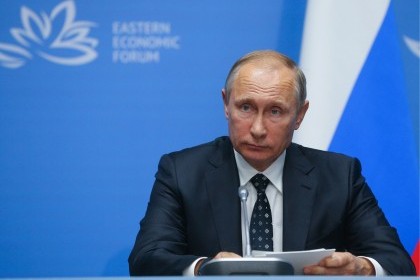 Courtesy: Eastern Economic Forum
Courtesy: Eastern Economic Forum
The Second Eastern Economic Forum, held last month in Russia, could have been a time for India to forge stronger trade links, but the governments of both countries have to be more supportive before this can happen.
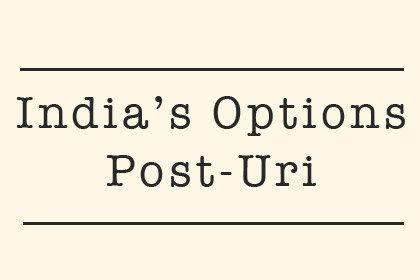 Courtesy: Gateway House
Courtesy: Gateway House
In the aftermath of the terrorist attack on the Indian Army brigade headquarters in the town of Uri, Jammu and Kashmir, Gateway House has compiled potential policy options for India.
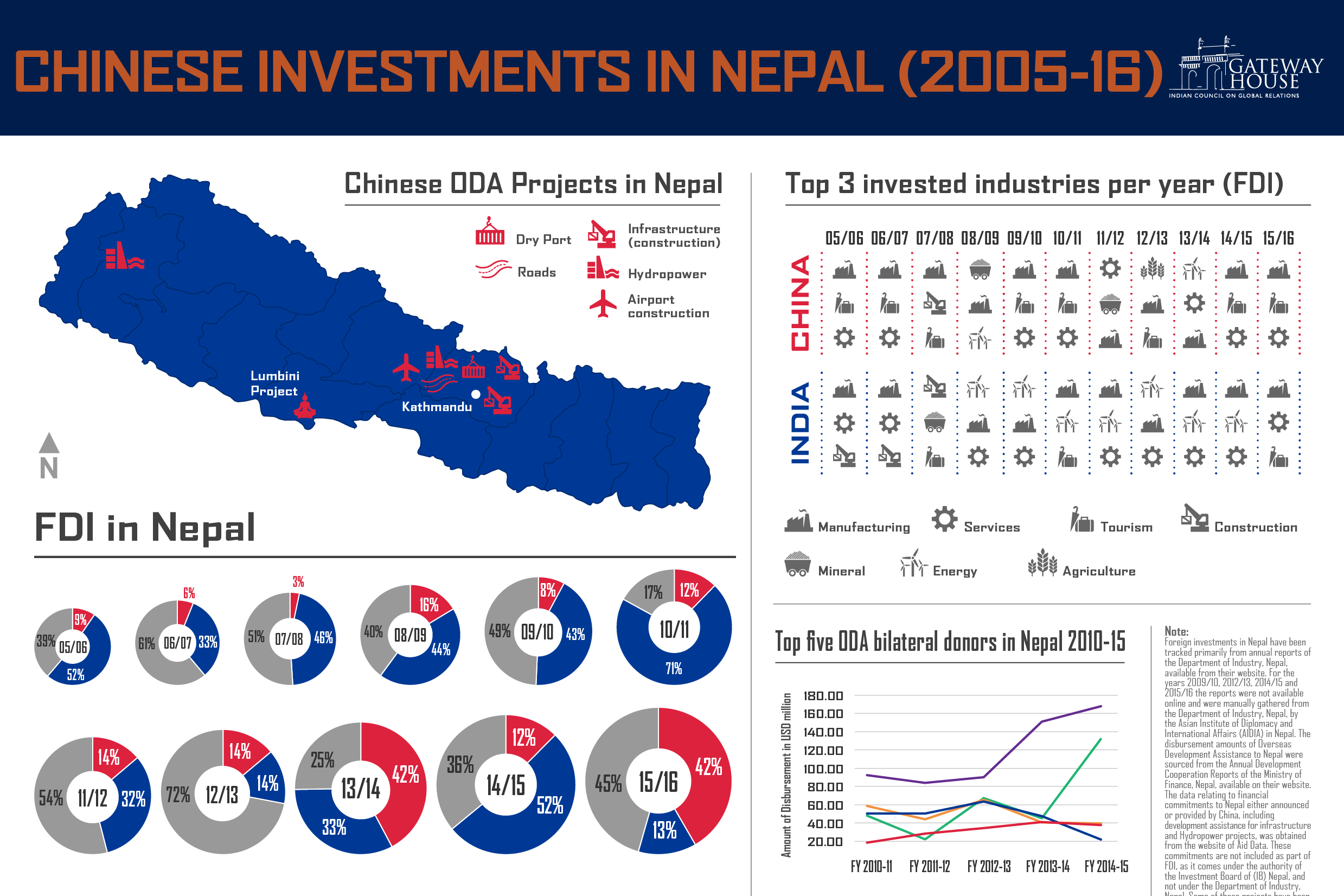 Courtesy: Gateway House
Courtesy: Gateway House
Nepalese Prime Minister Pushpa Kamal Dahal’s visit to India this week is his first foreign visit since assuming office in August this year. While this will further stimulate India-Nepal bilateral relations, China-Nepal economic cooperation has been rising significantly in recent years. To capture the extent of this cooperation, Gateway House has tracked China’s investment in Nepal from 2005 to 2016 and analysed the implications for India.